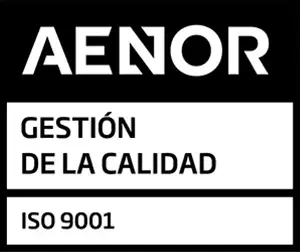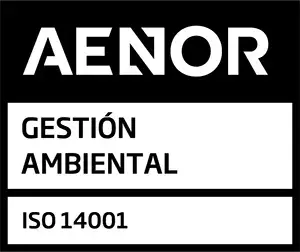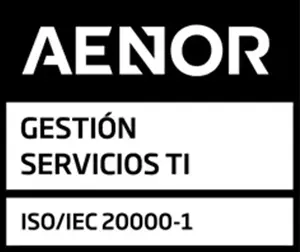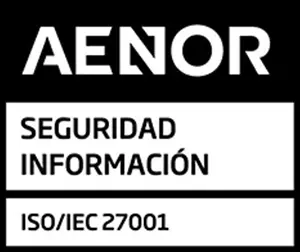COOKIE INFORMATION
Due to the entry into force of the relevant modification of the “Law on Information Society Services” (LSSICE) established by Royal Decree 13/2012, it is mandatory to obtain the express consent of the user of all web pages that use dispensable cookies before they browse through them.
WHAT ARE COOKIES?
Cookies and other similar technologies such as local shared objects, flash cookies, or pixels are tools used by Web servers to store and retrieve information about their visitors, as well as to ensure the proper functioning of the site. By using these devices, the Web server is able to remember some data concerning the user, such as their preferences for viewing the pages of that server, username and password, products that interest them most, etc.
COOKIES AFFECTED BY THE REGULATION AND EXEMPTED COOKIES
According to the EU directive, the cookies that require informed consent from the user are analytical cookies and advertising and affiliation cookies, while technical cookies and those necessary for the operation of the website or the provision of services expressly requested by the user are exempted.
TYPES OF COOKIES
ACCORDING TO PURPOSE
- Technical and functional cookies: These allow the user to navigate through a website, platform, or application and use the different options or services available on it.
- Analytical cookies: These allow the party responsible for them to monitor and analyze the behavior of users of the websites to which they are linked. The information collected through this type of cookies is used to measure the activity of the websites, application, or platform and to create navigation profiles of the users of said sites, applications, and platforms, in order to make improvements based on the analysis of the usage data made by the users of the service.
- Advertising cookies: These allow for the most efficient management of advertising spaces that, if applicable, the editor has included in a website, application, or platform from which the requested service is provided, based on criteria such as the content edited or the frequency with which ads are shown.
- Behavioral advertising cookies: These collect information about the user’s personal preferences and choices (retargeting) in order to allow for the most efficient management of the advertising spaces that, if applicable, the editor has included in a website, application, or platform from which the requested service is provided.
- Social cookies: These are set by social media platforms on services to allow you to share content with your friends and networks. Social media platforms have the ability to track your online activity outside of the Services. This may affect the content and messages you see on other services you visit.
- Affiliate cookies: These allow tracking of visits from other websites with which the website establishes an affiliation contract (affiliate companies).
- Security cookies: These store encrypted information to prevent the data stored in them from being vulnerable to malicious attacks by third parties.
ACCORDING TO OWNERSHIP
- First-party cookies: These are sent to the user’s terminal equipment from a computer or domain managed by the editor itself and from which the requested service is provided by the user.
- Third-party cookies: These are sent to the user’s terminal equipment from a computer or domain that is not managed by the editor, but by another entity that processes the data obtained through cookies.
ACCORDING TO THE RETENTION PERIOD
- Session cookies: These are a type of cookies designed to collect and store data while the user accesses a website.
- Persistent cookies: These are a type of cookies in which the data is still stored on the terminal and can be accessed and processed for a period defined by the cookie controller, and which can range from a few minutes to several years.
COOKIES USED ON THIS WEBSITE
| CONFIGURATION PANEL | ||||||||||
| TECHNICAL AND FUNCTIONAL COOKIESDo not require user consent | ||||||||||
| NAME | TYPE | PROPERTY | PURPOSE | TERM | OBSERVATIONS | |||||
| PHPSESSID | Technical | Own | Contains the session identifier | When the browser is closed | Session | |||||
| _deco_utm_referrer | Technical | Own | Stores the pages that refer to this one. | 2 months | Persistent | |||||
| cookielawinfo-checkbox-necessary | Technical | Own | Used for acceptance of necessary cookies. | 11 months | Persistent | |||||
| CONFIGURATION PANEL | ||||||||||
| ANALYTICAL COOKIESOR Mark or unmark as desired to accept or reject the installation of these cookies. | ||||||||||
| NAME | TYPE | PROPERTY | PURPOSE | TERM | OBSERVATIONS | |||||
| _ga | Analytical | Google Analytics | Enables the control function of unique visits. The first time a user enters the website through a browser, this cookie will be installed. When this user returns to the website with the same browser, the cookie will consider it to be the same user. Only if the user changes browsers, will it be considered another user | 2 years | Persistent | |||||
| _gat | Analytical | Google Analytics | Used to limit the speed of requests – the limitation of data collection on high-traffic sites | 10 minutes | Session | |||||
| _gid | Analytical | Google Analytics | Used to distinguish users | 24 hours | Session | |||||
CONFIGURATION PANEL
COOKIES ANALYTICS
O Check or uncheck as desired to accept or reject the installation of these cookies.
| NAME | TYPE | PROPERTY | PURPOSE | TERM | OBSERVATIONS |
| _ga | Analytical | Google Analytics | Enables the control function of unique visits. The first time a user enters the website through a browser, this cookie will be installed. When this user returns to the website with the same browser, the cookie will consider it to be the same user. Only if the user changes browsers, will it be considered another user | 2 years | Persistent |
| _gat | Analytical | Google Analytics | Used to limit the speed of requests – the limitation of data collection on high-traffic sites | 10 minutes | Session |
| _gid | Analytical | Google Analytics | Used to distinguish users | 24 hours | Session |
CONFIGURATION PANEL
COOKIES ANALYTICS
O Check or uncheck as desired to accept or reject the installation of these cookies.
| NAME | TYPE | PROPERTY | PURPOSE | TERM | OBSERVATIONS |
| _ga | Analytical | Google Analytics | Enables the control function of unique visits. The first time a user enters the website through a browser, this cookie will be installed. When this user returns to the website with the same browser, the cookie will consider it to be the same user. Only if the user changes browsers, will it be considered another user | 2 years | Persistent |
| _gat | Analytical | Google Analytics | Used to limit the speed of requests – the limitation of data collection on high-traffic sites | 10 minutes | Session |
| _gid | Analytical | Google Analytics | Used to distinguish users | 24 hours | Session |
Obtener más información para deshabilitar las cookies de Google Analytics:
Política de privacidad de Google
Exclusión de Google Analytics
También podrá controlar los anuncios y las tecnologías de seguimiento con la aplicación Ghostery: http://www.ghostery.com/
Más info: https://www.facebook.com/policies/cookies/
| PANEL DE CONFIGURACIÓN | |||||
| COOKIES DE TERCEROS CONTROLADAS POR EL EDITOR | |||||
| NOMBRE | TIPO | PROPIEDAD | FINALIDAD | PLAZO | OBSERVACIONES |
| 1P_JAR | Publicitaria | Transfers data to Google to make advertising more attractive | 1 week | Persistent | |
| CONSENT | Publicitaria | Contains a unique randomly generated value that allows the Platform to distinguish browsers and devices. This information is used to measure the performance of ads and provide product recommendations based on statistical data | 1 year | Persistent | |
| NID | The “Google +1” button used on our website is hosted by Google, your browser sends cookie information that Google requires if you keep the session active with your account, this data is used by Google in order to associate it with your account | 6 months | Persistent | ||
| DV | Technical | Used by Google to provide services and extract anonymous information about browsing | 10 minutes | Session | |
| CÓMO GESTIONAR LAS COOKIES DESDE EL NAVEGADOR | |||||
| Eliminar las cookies del dispositivo | Cookies that are already on a device can be deleted by clearing the browser’s history, which removes cookies from all visited websites. However, some saved information may also be lost (for example, login data or website preferences). | ||||
| Gestionar las cookies específicas del sitio | To have more precise control over the specific cookies of each site, users can adjust their privacy and cookie settings in the browser. | ||||
| Bloquear las cookies | Although most modern browsers can be configured to prevent cookies from being installed on devices, this may require manual adjustment of certain preferences each time a site or page is visited. In addition, some services and features may not work correctly (for example, profile logins). | ||||
| CÓMO ELIMINAR LAS COOKIES DE LOS NAVEGADORES MÁS COMUNES | |||||
| Chrome | http://support.google.com/chrome/answer/95647?hl=es | ||||
| Internet Explorer. Versión 11 | https://support.microsoft.com/es-es/help/278835/how-to-delete-cookie-files-in-internet-explorer | ||||
| Firefox. Versión 65.0.1 | https://www.mozilla.org/es-ES/privacy/websites/#cookies | ||||
| Safari Versión 5.1 | https://support.apple.com/es-es/guide/safari/sfri11471/mac | ||||
| Opera | https://help.opera.com/en/latest/security-and-privacy/#clearBrowsingData | ||||
A cookie is a file that will be downloaded to your computer when accessing certain web pages. Cookies allow a web page,
among other things, to store and retrieve information about a user’s browsing habits or their computer, and depending on
the information they contain and how their computer is used, they can be used to recognize it.
However, these means only obtain information related to the number of pages visited, the city assigned to the IP address
from which access is made, the number of new users, the frequency and recurrence of visits, the time of visit, the
browser, or the terminal operator or type from which access to the web is made.
These cookies are only associated with an anonymous user and their computer and do not provide references that allow the
deduction of the user’s name and surnames or access to any other type of data stored on the device.
MERCANZA S.L.U.’s cookies cannot read data from your hard drive or read cookies created by other service providers.
MERCANZA S.L.U. uses:
Own cookies:
- viewed_cookie_policy; BNES_ viewed_cookie_policy: Cookies used to store the record of the user’s acceptance of the cookie policy.
Third-party cookies:
- CONSENT: These cookies allow Google websites to remember information
that changes the appearance or behavior of the site, such as your preferred language or the region you are in.
For example, by remembering your region, a website can provide you with news about local traffic or weather
bulletins. These cookies also allow you to change the size of text, font, and other parts of web pages that
you can customize. The stored data is run through various unique identifiers, except for PREF, which saves
your preferences, such as the preferred zoom level. While we do not have control over Google’s cookies, a mix
of information is included to measure the number and behavior of users. - NID: Google cookie used to personalize ads displayed on
Google services such as Google Search, especially when you are not logged into a Google account.
Google may transmit such information to third parties when required by law, or when such third parties
process information on behalf of Google. Google will not associate your IP address with any other data
held by Google. By using this website, you consent to the processing of information about you by
Google in the manner and for the purposes set out above. - 1P_JAR: Transfers data to Google. It has a
permanence of 1 week.
Disable third-party cookies
- Internet Explorer: How to
manage cookies in Internet Explorer - Mozilla Firefox: Enable and
disable cookies - Google Chrome: How to manage cookies and site data
- Safari: Manage cookies
FAQs for: Cookie
1. Why are there so many notices now about the use of ‘cookies’?
In 2012, a modification was introduced in article 22.2 of the Law on Information Society Services and Electronic Commerce (LSSICE) of 2002. Until then, it was assumed that websites notified the use of
cookies in the texts they included under headings like “Legal Notice”, “Terms of Use”, “Privacy Policy” … But it was considered insufficient.
After the 2012 amendment, it established that the user must consent to the use of cookies, after being duly informed of the purposes for which they
are used.
2. What are the fines for violating cookie regulations?
Minor offenses carry fines of up to 30,000 euros and serious offenses can reach 150,000, although case law has never gone to such
extremes, usually setting amounts between 500 and 25,000 euros.
3. Can I delete cookies from my computer?
Yes, you can control or delete cookies whenever you want, although doing so may result in a different behavior on the web, and
you can also configure most browsers to stop accepting them. If you reject or delete them, some website features may not work correctly.
4. Are cookies a danger to my computer?
No, a cookie is a text file, not a program or plug-in. It cannot be used as a virus and cannot access your hard drive. It is the browser itself, not a
person, that saves the cookie from a website when necessary.
5. Can cookies fill up my hard drive?
Although cookies take up very little space (a few kilobytes), as you browse the internet, the accumulation of these can occupy a
relatively large amount of space on the hard drive. That is why both browsers and operating systems have their own automatic systems to prevent
this from happening, usually with a maximum number of cookies that can be stored. When that number is exceeded, the browser will automatically
delete those that have been used less.
6. Who must comply with this regulation?
- Corporate websites of companies.
- Corporate websites of self-employed professionals, regardless of whether they are used to inform about their businesses or as online stores.
- Online stores and other e-commerce platforms.
- Media or blogs of individuals that include some type of advertising.
This applies to both companies and professionals established in Spain and to foreign websites targeting the Spanish public.
In conclusion, a cookie is a file that will be downloaded to your computer when accessing certain web pages. Cookies allow a web page, among other
things, to store and retrieve information about a user’s browsing habits or their computer, and depending on the information they contain and how
their computer is used, they can be used to recognize it.
However, these means only obtain information related to the number of pages visited, the city assigned to the IP address from which access is made,
the number of new users, the frequency and recurrence of visits, the time of visit, the browser or the operator or type of terminal from which the
website is accessed.
These cookies are only associated with an anonymous user and their computer and do not provide references that allow the deduction of the user’s name
and surname or access to any other type of data stored on the device.
MERCANZA S.L.U.’s cookies cannot read data from your hard drive or read the cookie files created by other service providers.
MERCANZA S.L.U. uses:
Own cookies:
- viewed_cookie_policy; BNES_ viewed_cookie_policy: Cookies used to store the
user’s acceptance record of the cookie policy.
Third-party cookies:
- CONSENT: These cookies allow Google websites to remember information that changes the appearance or
behavior of the site, such as your preferred language or the region in which you are located. For example, by remembering your region, a
website can provide you with local traffic news or weather bulletins. These cookies also allow you to change the text size, font, and
other parts of the web pages that you can customize. The stored data runs through various unique identifiers, except for PREF which saves
your options, such as the preferred zoom level. While we do not have control over Google’s cookies, a mix of information fragments is
included to measure the number and behavior of users. - NID: Google cookie used to personalize the ads shown on Google services such as
Google Search, especially when you are not logged into a Google account. Google may transmit this information to third parties
when required by law, or when such third parties process the information on behalf of Google. Google will not associate your IP
address with any other data held by Google. By using this website, you consent to the processing of information about you by
Google in the manner and for the purposes set out above. - 1P_JAR: Transfers data to Google. It has a duration of 1 week.
Disable third-party cookies
- Internet Explorer: How to manage cookies in Internet
Explorer - Mozilla Firefox: Enable and disable cookies
- Google Chrome: How to manage
cookies and site data - Safari: Manage
cookies
Frequently Asked Questions for: Cookie
1. Why are there now so many notices about the use of ‘cookies’?
In 2012, an amendment was introduced to article 22.2 of the Law on Information Society Services and Electronic Commerce (LSSICE) of 2002. Until then,
it was assumed that websites notified the use of cookies in the texts they included under headings like “Legal Notice”, “Terms of Use”, “Privacy
Policy” … But it was considered insufficient.
After the 2012 amendment, it established that the user must consent to the use of cookies, after being duly informed of the purposes for which they
are used.
2. What are the fines for violating cookie regulations?
Minor offenses carry fines of up to 30,000 euros and serious offenses can reach 150,000, although case law has never gone to such
extremes, usually setting amounts between 500 and 25,000 euros.
3. Can I delete cookies from my computer?
Yes, you can control or delete cookies whenever you want, although doing so may result in a different behavior on the web, and
you can also configure most browsers to stop accepting them and if you reject or delete them, some website functionalities may not work correctly.
4. Are cookies a danger to my computer?
No, a cookie is a text file, not a program or plug-in. It cannot be used as a virus and cannot access your hard drive. It is the browser itself, not a
person, that saves the cookie from a web page when necessary.
5. Can cookies fill up my hard drive?
Although cookies take up very little space (just a few kilobytes), as you browse the internet, the accumulation of these cookies
can take up a relatively large amount of space on the hard drive. That’s why both browsers and operating systems have their own automatic systems
to prevent this from happening, usually with a maximum number of cookies that can be stored. When that number is exceeded, the browser will
automatically delete those that have been used less..
6. Who must comply with this regulation?
- Corporate pages of companies.
- Corporate pages of self-employed professionals, regardless of whether they are used to inform about their businesses or as online stores.
- Online stores and other e-commerce platforms.
- Media or blogs of individuals that include some form of advertising.
This applies to both companies and professionals established in Spain and to foreign websites aimed at the Spanish public.

